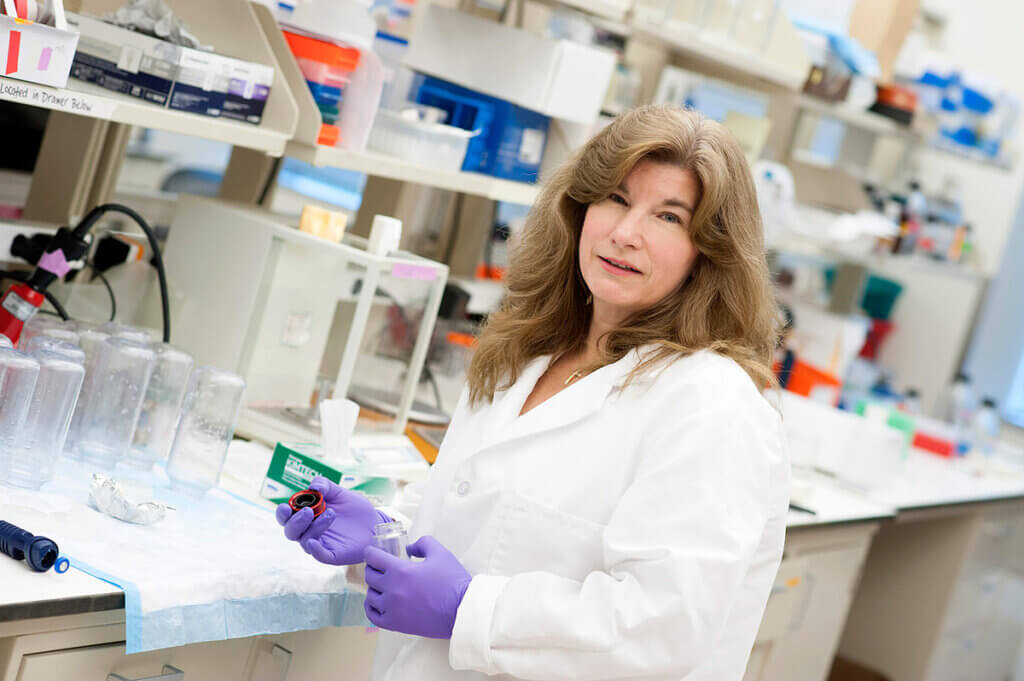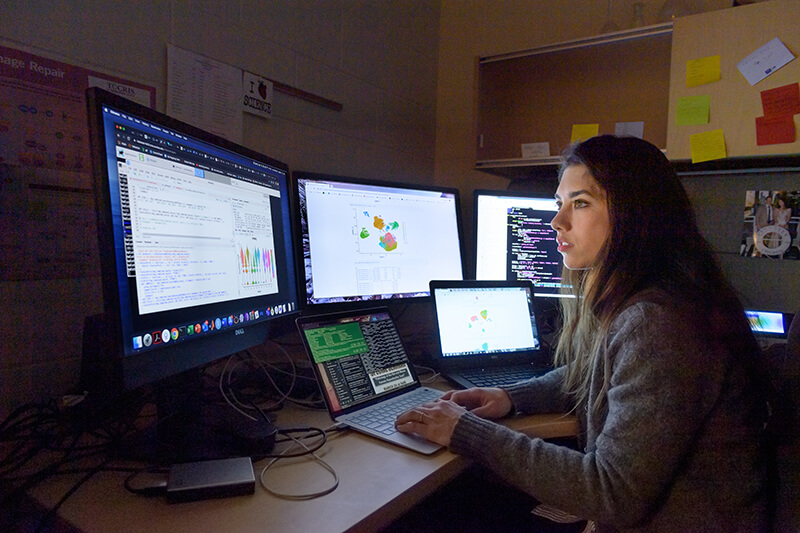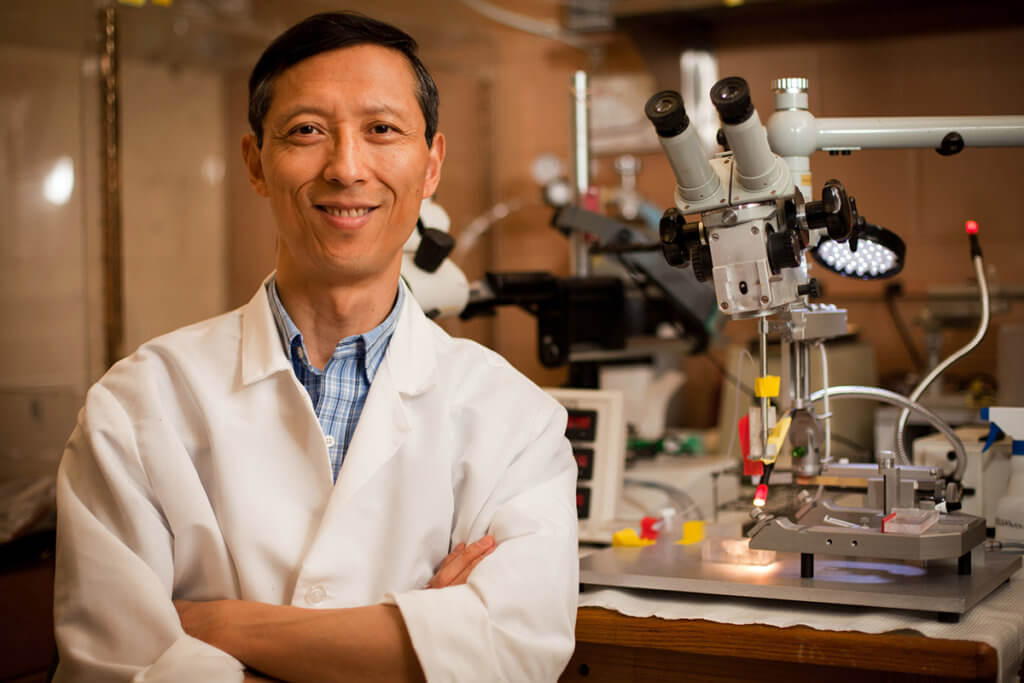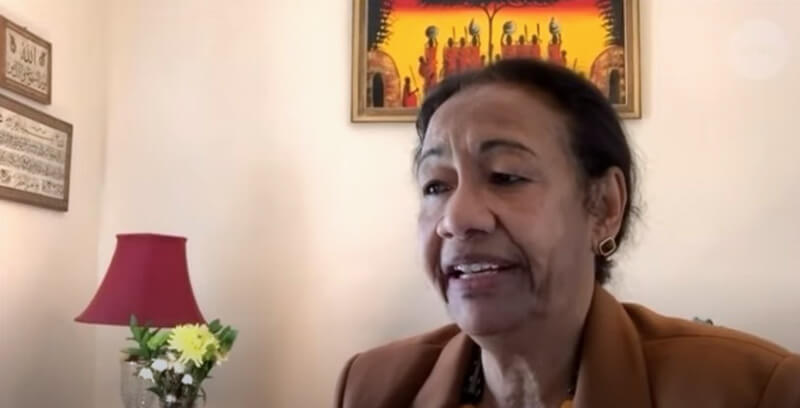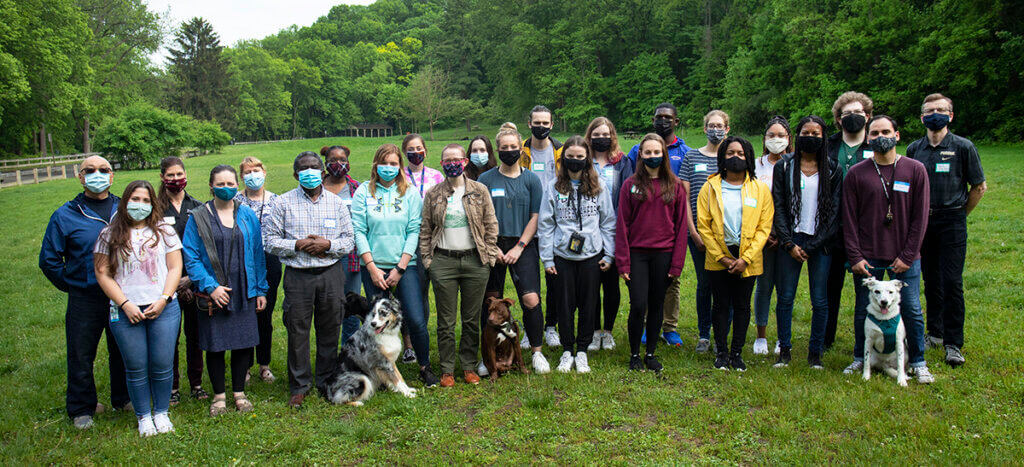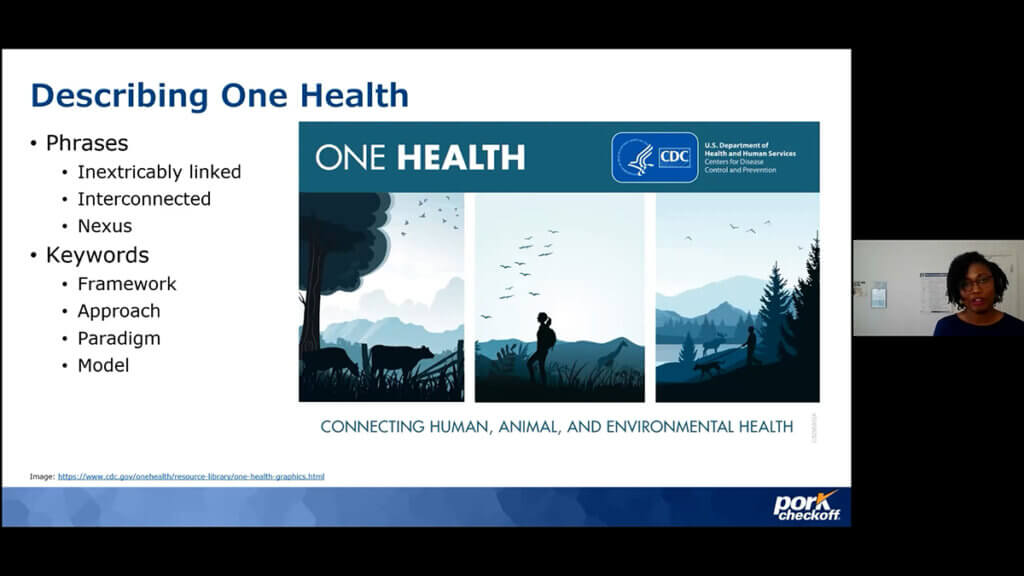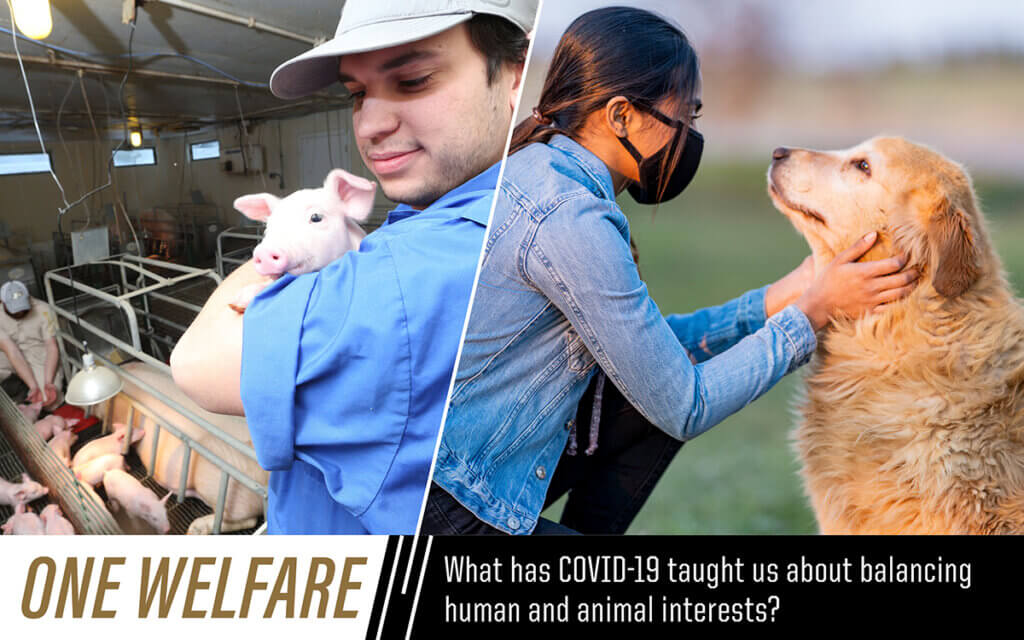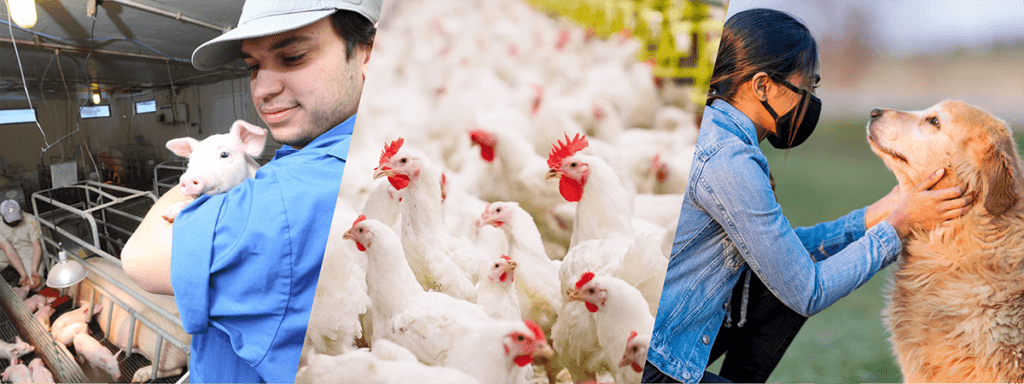Research
Basic Medical Sciences Professor Co-leads Research on Tissue-engineered Implants that Offer Hope for Patients with Vocal Injuries
June 24, 2021
New technology from innovators at Purdue University and the Indiana University School of Medicine may one day help patients who suffer devastating vocal injuries from surgery on the larynx. A collaborative team consisting of Purdue biomedical engineers and clinicians from IU has tissue-engineered component tissue replacements that support reconstruction of the larynx.
PVM Researcher Focuses on Data to Discover Better Cancer Diagnostics and Therapies
June 24, 2021
The next generation of treatments for cancer may be found, not by scientists peering through microscopes, but by computer scientists crunching numbers. Thanks to unprecedented amounts of data, Purdue University researchers across multiple disciplines, including comparative pathobiology, are using innovative data science techniques to better understand the genetics and cellular biology of cancer cells and tumors allowing them to pioneer new diagnostic tools, generate novel therapeutic treatments, and significantly advance the fight against cancer. Among the researchers involved in this work is Dr. Nadia Lanman, who holds an appointment as research assistant professor in the College of Veterinary Medicine’s Department of Comparative Pathobiology.
Research Day Resumes Virtually for Purdue University College of Veterinary Medicine
June 24, 2021
A longstanding tradition that annually highlights research by graduate students, interns, residents, veterinary students, and faculty returned to the Purdue University College of Veterinary Medicine in April, albeit in a virtual format, after a one year absence due to the COVID-19 pandemic. Normally held as an in-person program, the PVM Research Day features a day-long focus on basic science and clinical/applied research in veterinary and comparative medicine.
Indiana Fund’s Commercialization Award Supports Promising Technology Based on Work of PVM Faculty Member Riyi Shi
June 18, 2021
Technology related to the research of Purdue Veterinary Medicine neuroscientist Riyi Shi has received major new support as a means of providing new options for patients with neurological disease and pain.
Cancer Milestone Video Published by Nature Spotlights PVM Researcher Sulma Mohammed
June 11, 2021
The Journal Nature celebrates two decades of advancements in cancer research with the publication of Milestones in Cancer, which includes a feature on the work of Dr. Sulma Mohammed, professor of cancer biology in the Purdue University College of Veterinary Medicine’s Department of Comparative Pathobiology.
Veterinary Scholars Summer Research Program Resumes in Person After Pandemic
June 11, 2021
Research and summer go hand-in-hand for 16 students in Purdue Veterinary Medicine’s Veterinary Scholars Summer Research Program. Designed to increase the number of veterinarians involved in biomedical and clinical research, the program kicked-off this year with a summer picnic at Happy Hollow Park May 19. The event was carefully planned with proper precautions to protect everyone’s health and safety.
PVM Researcher Focuses on Data to Discover Better Cancer Diagnostics and Therapies
May 28, 2021
The next generation of treatments for cancer may be found, not by scientists peering through microscopes, but by computer scientists crunching numbers. Thanks to unprecedented amounts of data, Purdue University researchers across multiple disciplines, including comparative pathobiology, are using innovative data science techniques to better understand the genetics and cellular biology of cancer cells and tumors allowing them to pioneer new diagnostic tools, generate novel therapeutic treatments, and significantly advance the fight against cancer. Among the researchers involved in this work is Dr. Nadia Lanman, who holds an appointment as research assistant professor in the College of Veterinary Medicine’s Department of Comparative Pathobiology.
CAWS Symposium Draws Participants Virtually from Around the World
May 28, 2021
In keeping with Protect Purdue requirements, the 2021 CAWS Symposium was held virtually May 19-20 and proved to be a hit, with 153 registrants participating from 30 states and nine countries. The two-day program focused on understanding how the COVID-19 pandemic has influenced perceptions about the human-animal bond.
Virtual CAWS Symposium Focuses on Lessons Learned from COVID-19
May 14, 2021
With a focus on understanding how the COVID-19 pandemic has influenced perceptions about the human-animal bond, the 2021 CAWS Virtual Symposium, set to begin next Wednesday, May 19, has attracted more than 80 registrants from eight countries including the U.S.
Center for Animal Welfare Science’s Virtual Symposium to Address Lessons Learned from COVID-19
April 30, 2021
The 2021 CAWS Virtual Symposium, set for May 19-20, will focus on understanding how the pandemic has influenced perceptions about the human-animal bond. The symposium is entitled “One Welfare: What has COVID-19 taught us about balancing human and animal interests?” The two-day program will include sessions exploring the effects of the pandemic on animal welfare, human health and well-being.

